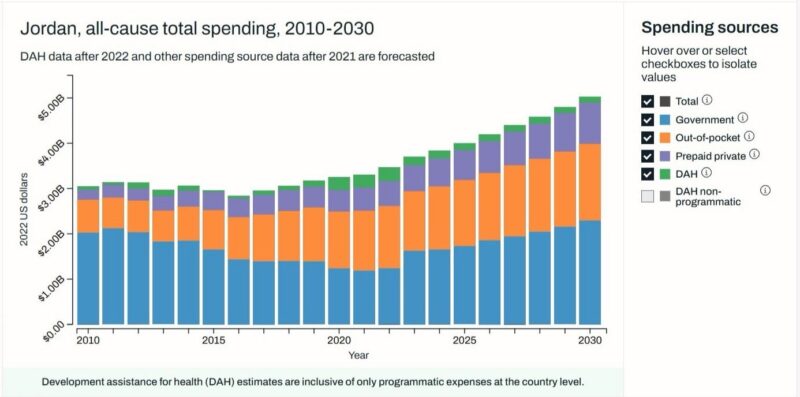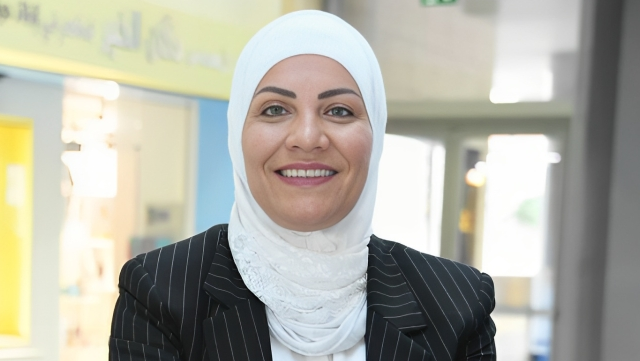Nisreen Qatamish, CEO of King Hussein Cancer Foundation and Center, shared a post on LinkedIn:
“From Reaction to Resilience: Rethinking Healthcare Financing in Jordan
I came across a interesting graph that shows Jordan’s total health spending from 2010 to 2030.
The pattern is clear:
- Total spending has steadily increased, and is projected to continue rising — a sign of growing national commitment to health, but also a reminder of the mounting pressure on our current financing model.
- Despite this growth, out-of-pocket spending still accounts for nearly 1 in 4 dinars spent on health — placing an unsustainable burden on families, especially the most vulnerable.
- Government remains the primary funder, but this centralized model is under fiscal strain and lacks the agility to keep up with rising demand and costs.
- Development assistance, while critical during crises, is neither predictable nor sufficient to guarantee long-term equity.
It’s time for a shift:
From patchwork responses to a comprehensive, social insurance-based model.
From spending after the fact to proactively protecting vulnerable populations before crisis hits.
We need to diversify our health financing to:
- Reduce catastrophic out-of-pocket costs
- Pool risk across the population
- Ensure long-term sustainability of care
- Promote equity for refugees, low-income households, and the chronically ill
Social health insurance isn’t just a financing tool — it’s a promise to protect people before they need saving.
At KHCF and KHCC, we continue to ask: How can we lead in this transformation?
Cancer care is a prime example of why this shift is urgent. Families facing a life-threatening diagnosis cannot wait for fragmented funding or delayed coverage. They need protection, access, and dignity from day one.
That’s why we established the Cancer Care Insurance Program — a social, participatory insurance model. It’s a bold first step toward building a more resilient, equitable, and sustainable health system for all.”

